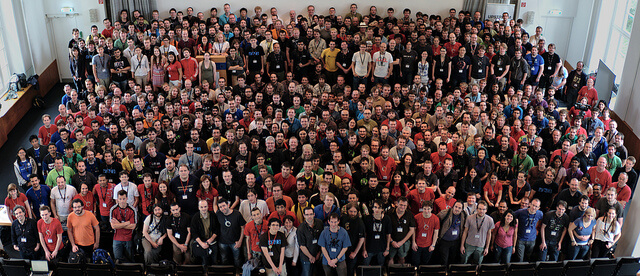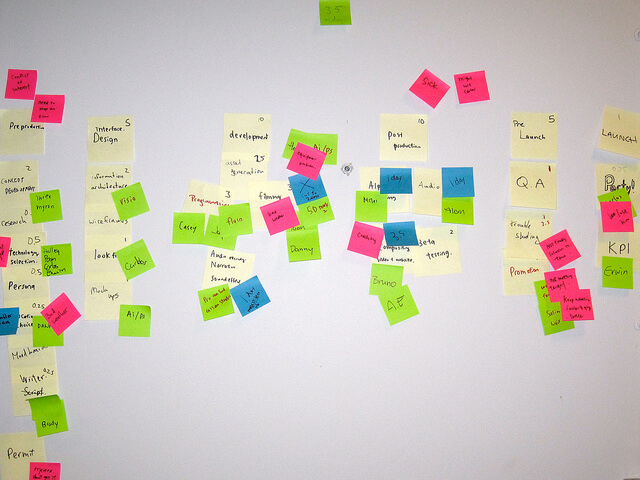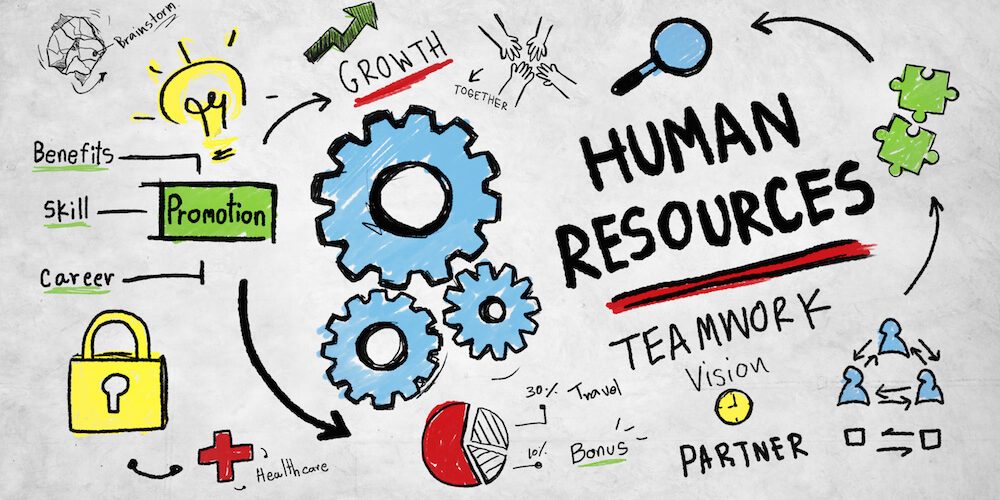HR is in the midst of a paradigm shift.
Smart companies know that in our modern service and information economies, people are actually our most valuable assets. As such, HR has taken on an increasingly front-line, strategic function, and is as important as finance, sales, marketing, or operations.
So what does this mean for today’s crop of HR professionals?
To put it bluntly, your job is harder than ever.
Not only are you expected have to have a solid foundation in the traditional areas of HR expertise, but you have a whole new set of skills and responsibilities to master, and a whole host of additional considerations. Now you have to balance traditional areas like compensation, hiring, and employment codes, with new areas like retention, organizational culture, engagement, internal communications, leadership and development, and business strategy.
As it stands today, the role of HR in organizations remains one of increased responsibilities, a greater focus on strategic outcomes, and stricter accountability across the board. So how do you do it? As an HR pro, where do you focus your time and effort? What qualities, skills and habits do you need to master in order to provide the most value for your company?
We’ve compiled this one-stop list that lays out six key traits that stellar HR professionals need to have in order to thrive in today’s challenging business landscape.
Habit #1 – Measure Against Business Objectives

Traditional HR thinking tells us that HR is a one-size-fits-all set of best practices, with standardized processes and procedures with which managers must comply across the board. But effective practitioners know that HR does not exist in a vacuum.
If people are a company’s most valuable asset, then the acquisition, retention, and development of people must be strategically aligned with the unique goals of your business. And since every business has different goals, every HR practice must be tailored to those specific goals. The best HR pros recognize this, and make it a habit to constantly check-in with leadership to make sure that HR strategies are aligned with overall business objectives.
Communication with business strategists and stakeholders is key. Constant check-ins with your company’s executive leadership will help ensure that you aren’t spinning your wheels, that you are sourcing and hiring the right candidates, and that you are creating the right culture for your business.
Habit #2 – Balance Transparency and Discretion

It goes without saying that a career in HR involves dealing with sensitive information, and that discretion is of paramount importance in many scenarios that HR practitioners face. However, the importance of discretion has had a tendency to make HR pros fearful of open, honest communication, and has even turned some HR departments into black holes of information.
So why should HR departments embrace transparency? The short answer is, they don’t have a choice.
In the networked age, and in an era in which Millennials now make up the largest segment of the population, transparency is the norm. It’s expected that companies are honest and forthright, and when there’s a disconnect between what is communicated (or not communicated) and what employees experience, the results can be disastrous. At risk is nothing short of the authenticity of the internal culture that the company has worked so hard to cultivate.
The same holds true externally. HR departments can no longer hide information from potential candidates. Personal and professional social networks and job rating sites like Glassdoor have made the internal culture at virtually every company accessible, so HR departments have to be transparent during recruiting or risk losing out on top talent due to a lack of credibility.
In practice, this means that companies and HR departments should err on the side of information sharing rather than secrecy, and they need to work hard to create a positive culture that they are proud to share. Great HR pros know that while discretion still rules the day in many situations, honest communication is absolutely necessary for the organization to maintain credibility and attract and retain the talent that the company needs to flourish.
Habit #3 – Know that People are an Asset, Not a Resource

As an HR pro, you’ve undoubtedly heard the term “human capital,” and likely heard it used interchangeably with “human resources.” But the two terms denote very different ideas. It’s not a matter of mere semantics – “human resources” implies that talent is a fixed, exhaustible commodity, to be allocated like any other resource in the business.
“Human capital,” on the other hand, implies that talent is something in which you invest and that can be grown. The human capital model places a greater emphasis on developing and training individual contributors.
In her book Mindset, Stanford Psychologist Carol Dweck studied companies that were leaders in their industries for many years, and compared them with those who were either perennial also-rans or that had fallen from the top. In every case, it was the companies that focused on continual growth and development for their employees that reached the top of their industries… and stayed there.
HR practitioners must understand the importance of training and development, and must partner with upper management to design and deploy professional development programs. Often it’s the difference between winning your industry and losing out to your competitors.
Habit #4 – Understand the Importance of Culture and Engagement
Your company’s internal culture has a profound impact on everything you do as a business. We like to call it the “inside-out effect” of culture: the internal habits, behaviors, mindsets, and methods of problem solving all impact your companies external brand, product, and customer service. Great HR pros know this, and work hard to make sure that they deploy the right culture for their business.
That’s because culture doesn’t happen by accident. It takes strategy and execution.
What if your company doesn’t have a tangible culture – or worse – has a the wrong culture to help your business succeed?
Start with your company’s values. If your company doesn’t have clearly articulated values – create them! Choose values that help move your company’s goals forward. If great customer service is essential to your business, incorporate it into your values. If innovation is a must, make that a value.
Once your values are spelled out, create a culture that supports those values and helps your company get even closer to its goals. That includes the type of workspace environment you create, your internal processes and procedures, and of course, perks and activities.
In highly competitive industries, perks are a must. For Millennial workers, having access to onsite food, workout facilities, game rooms, and other amenities are a signal that your company is progressive and cares about their welfare. Work-life balance is out, and work-life integration is the new normal. This means that your workspace should feel as much home as office, and that employees can be themselves both in and out of the office.
Finally, internal cultures aren’t static. They take on the personalities of the people at your company, and thus evolve over time as people inevitably cycle in and out. But again, that doesn’t mean culture has to be accidental. Hiring for cultural fit helps ensure that the culture stays consistent. Every new hire is an opportunity to reinforce your culture, as well as augment it with the personality of the person being integrated into the organization.
Habit #5 – Apply Knowledge or Experience Outside of HR

Some of the most effective, most prominent HR leaders didn’t start their careers in HR. They started as line operations or finance managers, and they applied their knowledge of the business to the realm of HR. If you have the opportunity, start with a rotational tour at your company. Learn other job functions, and soak up as much knowledge about the industry as you can. This will only aid you when you return to HR, and have to make tough, strategic decisions that affect the business.
If a rotation is not a practical option, try shadowing other teams for a day or two, or interview members of other teams within your company. The more you know about the other business units, the more you’ll be able to support them with HR programs, and the better you’ll be at hiring for those roles in the future as your company grows.
Habit #6 – Never Stop Learning

The best HR professionals are leaders, and the best leaders are constantly growing their skills and experience. They know that knowledge and talent aren’t fixed traits, and that they can constantly acquire new skills and experience. Likewise, they aren’t overly concerned with failing. They crave challenges, and see failures as opportunities for growth. This mindset is absolutely essential for HR pros in today’s rapidly changing business landscape.
As an HR pro, you’re already a people expert. But today’s economy requires you to be much more than that. You need broad business knowledge and specific industry knowledge, and you need to be able to develop and deploy HR strategies that support your overall business strategy. As such, an openness to growth and learning is imperative.
Conclusion
Highly effective HR pros know that they need to be strategic, knowledgable, and growth-minded in order to make an impact on companies. This takes focus, strategy, and a long-term commitment to growth and knowledge.


